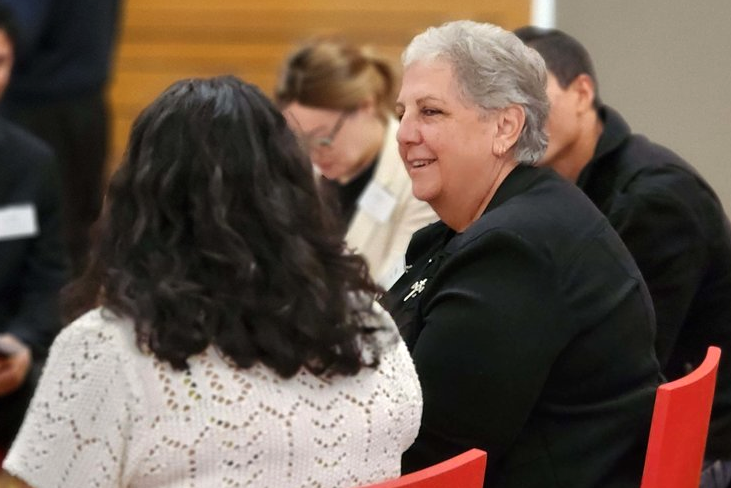
Annually in the Australian Catholic Church, we celebrate National Vocations Awareness Week, this year being held from 6-13 August.
Why do some people choose chastity? To live a life of poverty? To life a life of obedience?
The goal in each vocation is to love God with all one’s heart, mind, soul and strength, and to love one’s neighbour like one’s self. To each person, God will give the graces necessary to grow in holiness.
The particular state of life I have been called to is Religious Life, where I take vows of chastity, poverty and obedience. All these three vows are about relationship and sharing goods. Obedience – listening to God and to others. Poverty – sharing of all my goods and belongings. Chastity – foregoing an intimate physical relationship with others, however, still having deep friendships with people, where there is mutual sharing of innermost feelings. For me intimacy is the only way to live consecrated celibacy.
A vocation is not a job. A vocation is your whole life. Simple, but profound all at once. Vocation from the Latin word, vocare, is to name or call. It takes great conviction to follow a vocation, to follow a call that you can’t really name or explain to others. So why would someone choose a life of chastity/celibacy?
The Constitutions of the Sisters of Saint Joseph explains that through our public commitment we are called to love with undivided hearts, and to dedicate ourselves to the service of God and our neighbour. I hear echoes of Thomas Aquinas who said “love is willing the good of the other”. What does that mean for me in real life? It means that when I meet someone, I try not to have a pre-conceived idea of them, and if I am going to be a friend to them or not. I am open to listening to them, spending time with them. Healthy growth in love, becomes less and less about the self, but more about the other. The challenge is to embrace the way so living and loving that are generous faithful and fruitful. There is a radical openness to the unexpected.
Just because I’m a Catholic nun doesn’t mean that I stop belonging to a family – or being a daughter, a sister, an aunty, a Great Zia. I am called to live in the world today, being the best possible example of each of these.
Joan Chittister in her book, The Fire in These Ashes, acknowledges the completeness of the journey of personal transformation. Even though she wrote these words more than thirty years ago, they still ring true today. She says:
“To live a religious life takes all the life we have. To live a religious life takes
-
- the heart of a hermit
- the soul of a mountain climber
- the eyes of a lover
- the hands of a healer
- and the mind of a rabbi
It requires total immersion in the life of Christ and complete concentration on the meaning of the Gospel life today.” [1]
My choosing religious life embodies a vibrant invitation to live, because our vows have value only because it says something about the desire to be alive.
In his letter to Consecrated Men and Women, Pope Francis reminded them:
Sr Rita Malavisi rsj
You might like to visit Ways of Commitment.
Footnotes:
[1] Chittister, Joan, OSB The Fire in These Ashes: A Spirituality of Contemporary Religious Life.. Sheed & Ward Publishing, 1995.
[2] Pope Francis. Rejoice: A Letter to Consecrated Men and Women. Congregation for Institutes of Consecrated Life and Apostolic Religious. (Rome, 2 February 2014).
